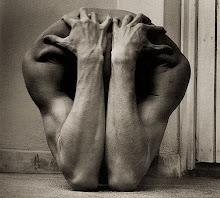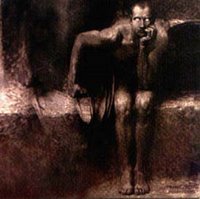Seeking Ultimate Reality
Seeking The Ultimate Nature of Reality
|
This essay involves an investigation into the ultimate nature of reality. For many modern people, such an idea appears ridiculous, since the ultimate nature of reality is thought by them to be unknowable. Mary Atwood alluded to this in her work on Hermeticism.
| "We are well aware that this kind of philosophy is obsolete; that the capacity of man is considered unequal to the discovery of essential Causes; and that all pretensions to interior illumination have appeared fanciful, and are lightly esteemed in the comparison with modern experimental sciences. It may be a question however whether they, who have determined thus, were competent judges; whether they have at all entered upon the ground of the ancient doctrine to prove it, or studied so far as even to surmise the Method by which the ancients were assisted to propound the mystery of the Causal Principle in life."
|
True philosophers--a rare species in the modern world--quest for the universal substrate of life, the essence which subsists in all that gains existence through this elemental constituent. This underlying element is sometimes referred to as force, light, substance, entity, or higher consciousness.
"The force referred to, and with which the Hermetist sought to become identified," Mary Atwood indicates, "is that of the Light which in the philosophical prologue to the fourth Gospel is called 'the life of men' and 'without which is nothing which has been made,' however unconscious of its latent presence its creatures may be--for it 'dwelleth in darkness and the darkness comprehendeth it not.' It is the Light that, anteriorly to that of the solar and stellar bodies and all other derivatives from it, originated at the primal Fiat Lux [let there be light]. . ." |
Hermeticists referred to this essence as Materia Prima, the "First Matter," una sola Res: "the One Thing," the basal substrate underlying all terrestrial phenomena. Some seers believed this elemental essence to be incapable of being externalized, and therefore cognized only introspectively, while others held that it is capable of sensory appearance.
The authentic philosopher distinguishes between the two aspects of knowledge:
|
|
For most people, faith in ordinary perception is total; they believe that they see, hear, taste, smell, and touch a "real" world "out there" with unquestionable verity. They assume that reality is as they experience it. The ordinary world-view is not only acceptable but preferable to any other they might consider. Certainly, for the ordinary events of life their perception is accurate enough to allow them to avoid running into tall buildings and anticipating that the sun will "rise" 1 in the morning without fail.
Because of our modern assumption that ordinary perception puts us in touch with reality, it's difficult to understand what philosophers have meant by searching for the ultimate nature of reality. For most people, it doesn't make sense to search for something you already have; if you already know reality through ordinary perception, why would you search for it?

We must somehow develop the realization of the delusory nature of sense experience and comprehend that reality is something which is largely unknown and deeply mysterious. The difficulty is that our ordinary "description" of the world works and appears to provide us with the ultimate grasp of reality.
In this essay, we'll be engaging in exercises which provide a definite experience of the unreliability of our sense perceptions, so we can begin to comprehend that reality is something unknown and mysterious. The exercises can feel like nonsense to those who are incapable of suspending their total belief in their ordinary perceptions. Persons of this kind dismiss metaphysical exercises with glib statements such as: "Of course this is a seeming perceptual illusion, but it is caused by . . ." Such people like to feel they "save" their "interpretation" of reality with such magical phrases as "visual illusion." Even after experiencing an instance where their senses reveal two different "realities," their ordinary sense of knowing reality unquestionably remains.

"How can I tell what I think until I see what I say?"
E. M. Forester

-excerptread the rest @ hermes press
Labels: nature, philosophy, reality

























0 Comments:
Post a Comment
<< Home